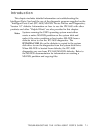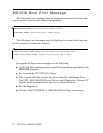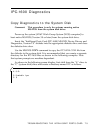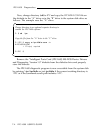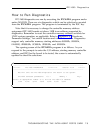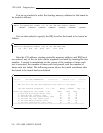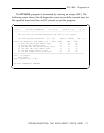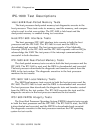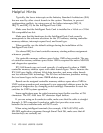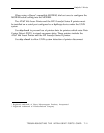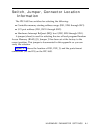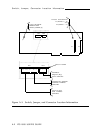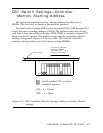
IPC-1600 Diagnostics
IPC-1600 Test Descriptions
Host 64KB Dual-Ported Memory Tests
The host processor dual-ported memory test diagnostics execute in the
host processor. These tests write to memory, read the memory, and compare
what is read to what was written. The IPC-1600 is held reset and the
dual-ported memory is enabled during test execution.
Host/lPC-1600 Interface Tests
The host processor/IPC-1600 interface tests execute in both the host
processor and the IPC-1600. The IPC-1600 is reset and the BIOS is
downloaded and executed. The host processor sends a Non-Maskable
Interrupt (NMI) to the IPC-1600 and the IPC-1600 responds with an IRQ to
acknowledge the NMI. The test passes if the interrupt communication is
successful in both directions.
IPC-1600 64K Dual-Ported Memory Tests
The dual-ported memory tests execute in both the host processor and the
IPC-1600. The IPC-1600 is reset and the BIOS is downloaded and executed.
The host processor downloads the diagnostic and transfers control from the
BIOS to the test routine. The diagnostic executive in the host processor
monitors the test results.
IPC-1600 16K Local Memory Tests
The 16KB local memory tests execute in both the host processor and the
IPC-1600. The IPC-1600 is reset and the BIOS is downloaded and executed.
The host processor then downloads the diagnostic tests and transfers control
from the BIOS to the test routine. The IPC-1600 executes the tests and the
diagnostic executive in the host processor monitors the test results.
IPC-1600 FEPOS Integrity Tests
The Front End Processor Operating System (FEPOS) integrity tests execute
in both the host processor and the IPC-1600. The IPC-1600 is reset, the BIOS
is downloaded and executed, and the FEPOS is downloaded and executed.
The diagnostic executive in the host processor monitors the FEP operating
system for test results.
7-8 IPC-1600 USER’S GUIDE




